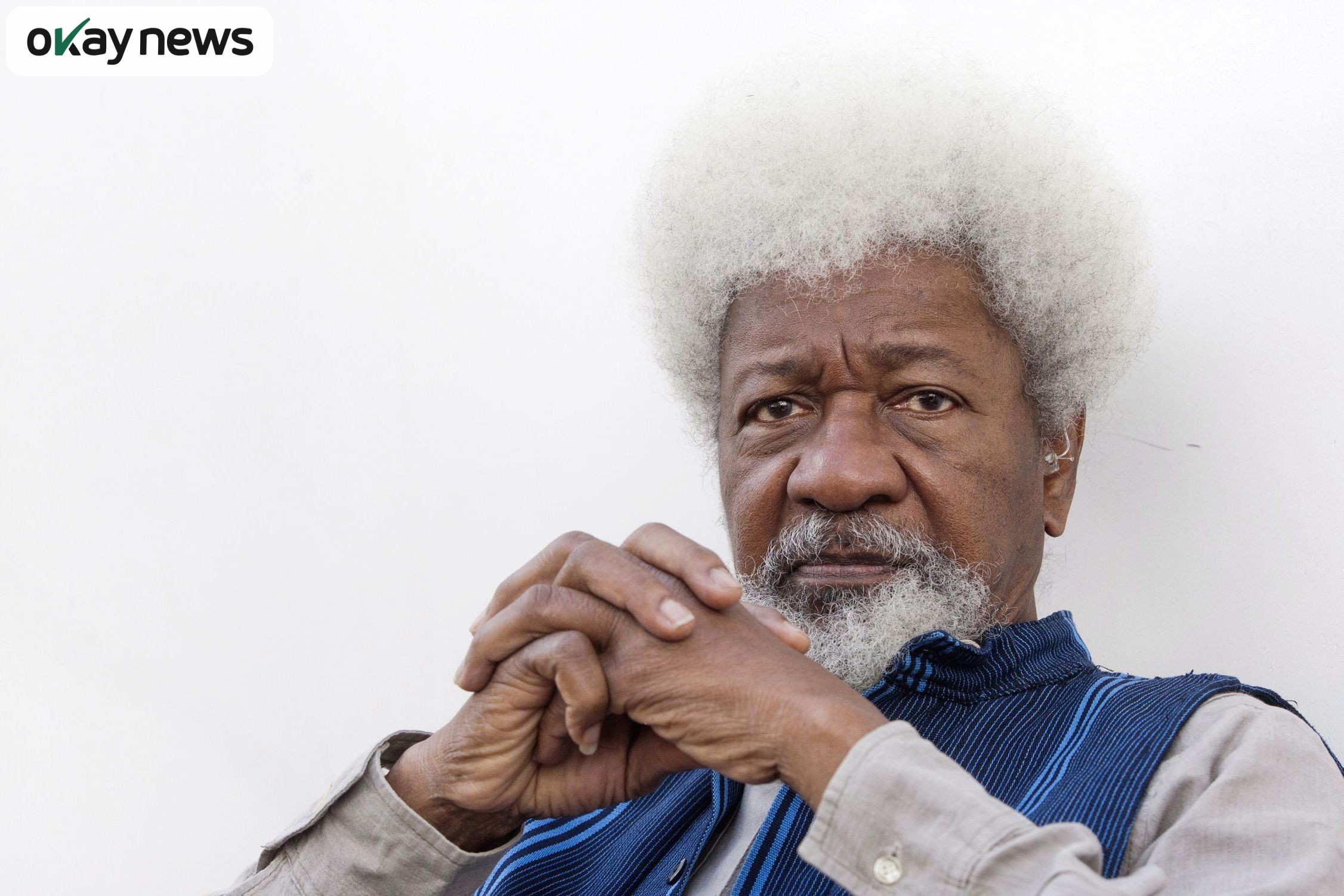Nobel Prize winning writer Professor Wole Soyinka has strongly criticised recent comments attributed to President of the United States of America, Donald Trump, in which Trump threatened to send American military forces into Nigeria. Soyinka stated that such a declaration demonstrated a complete misunderstanding of Nigeria’s long-standing and deeply layered security issues. Okay News reports.
Professor Soyinka spoke on Friday in the city of Makurdi after a meeting with the Governor of Benue State, Hyacinth Alia, where he addressed the growing global reactions to insecurity in Nigeria. He explained that Nigeria’s internal conflicts could not be approached with careless or impulsive statements from foreign leaders.
According to the literary icon, it is unacceptable for any foreign authority to assume that the solution to Nigeria’s problems lies in sudden outside intervention without first understanding the historical, political, and economic roots of the crisis. He criticised Trump’s rhetoric, noting that the American president had suggested that he would “come to help” Nigeria with little understanding of the country’s realities.
“You do not just open your mouth and say, ‘I am coming to help you whether you like it or not… and I am coming with violence from outside with poor, almost non-existent analysis of the complexities of where the problem is,’” Soyinka said.
He added that statements suggesting rapid and aggressive military action were dangerous and dismissive of the experiences of affected communities. “And you say, ‘I am coming to help you, I am coming with guns a-blazing’. And when we come in, ‘it is going to be fast, vicious and swift’,” he added.
The renowned scholar has consistently argued that Nigeria’s violent outbreaks are largely driven by extremist groups who manipulate religious identity for political and financial gain. He has repeatedly stressed that the crisis should not be framed as a religious war.
Soyinka, while demanding responsible leadership, stated that governments must prioritise the protection of citizens without ignoring the dignity of victims who have suffered attacks. “Is that the language of somebody whose head is correct? Any government has an obligation to ensure the welfare of its citizens. But, at least, have some respect for victims and those trying to find solutions to the unacceptable situation,” he said.
Trump had on the thirty-first day of October redesignated Nigeria as a “Country of Particular Concern”, accusing the nation of not doing enough to protect Christians from targeted killings. He further warned that he would consider deploying United States military forces if such incidents continued.
The Government of Nigeria, led by President Bola Tinubu, dismissed the claims, asserting that the allegation “does not reflect our national reality”.
The United States House Foreign Affairs Subcommittee on Africa recently held a public hearing in Washington, where lawmakers, diplomats, religious leaders, and policy experts expressed divided opinions over Trump’s decision to categorise Nigeria as a “Country of Particular Concern”.




